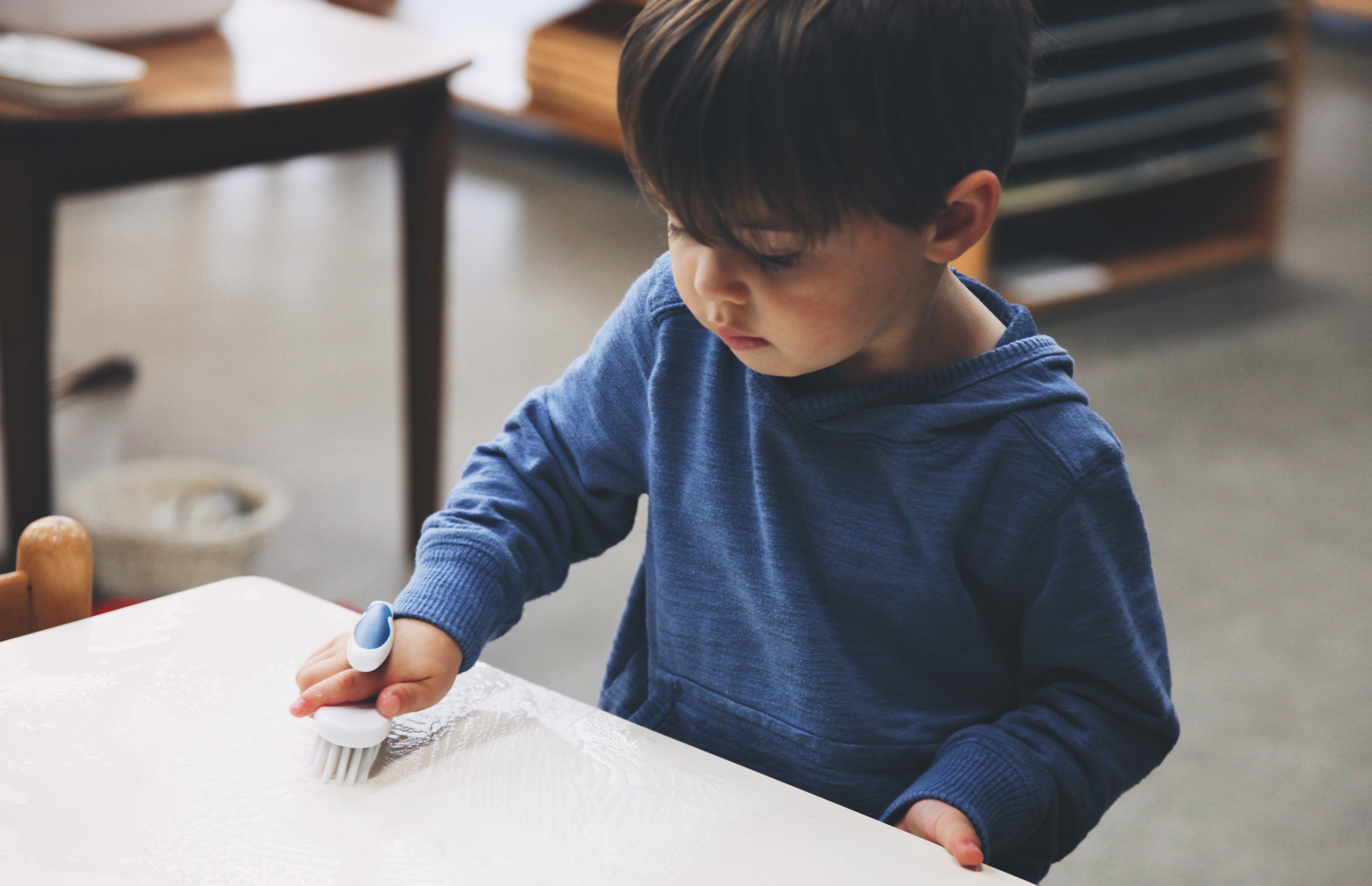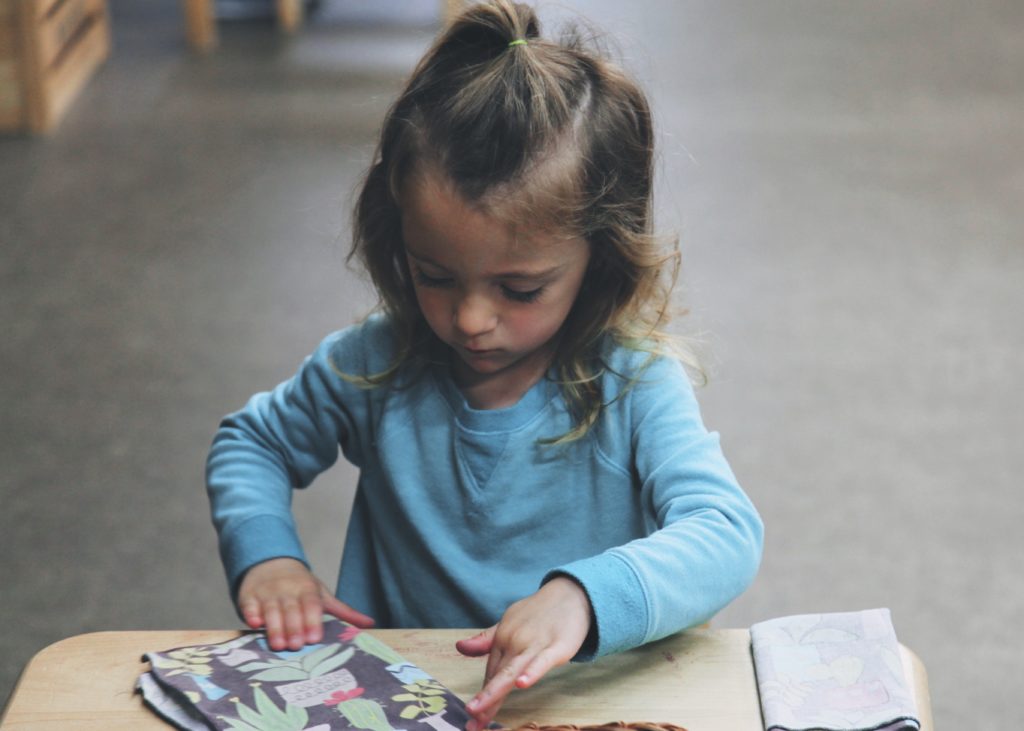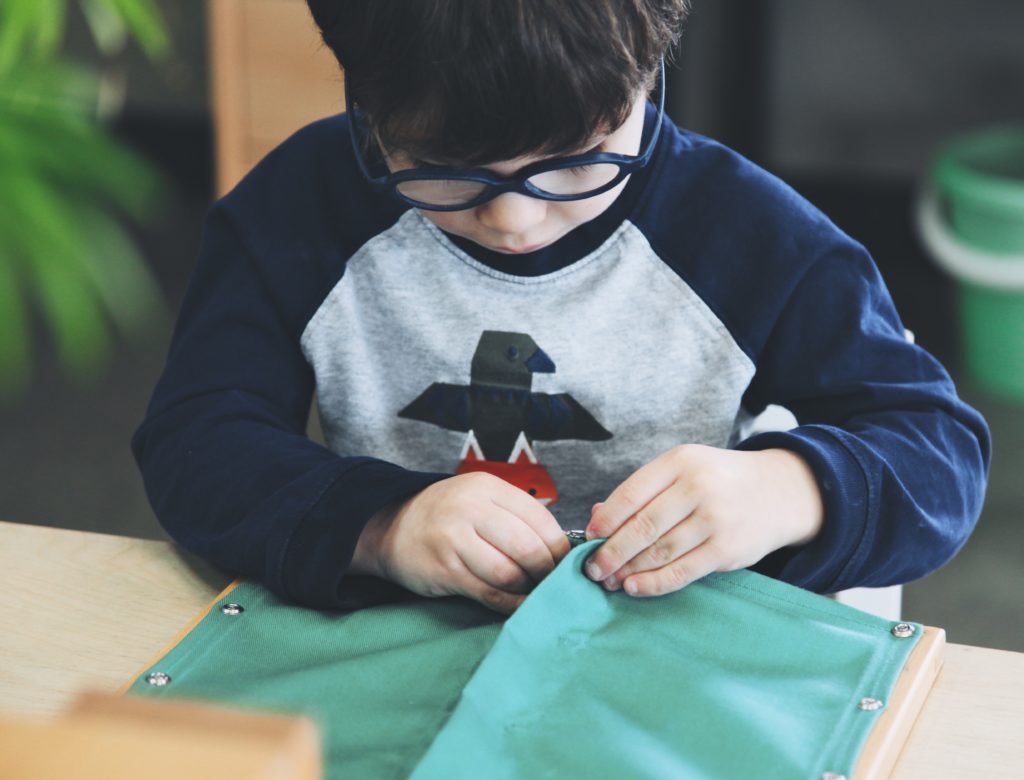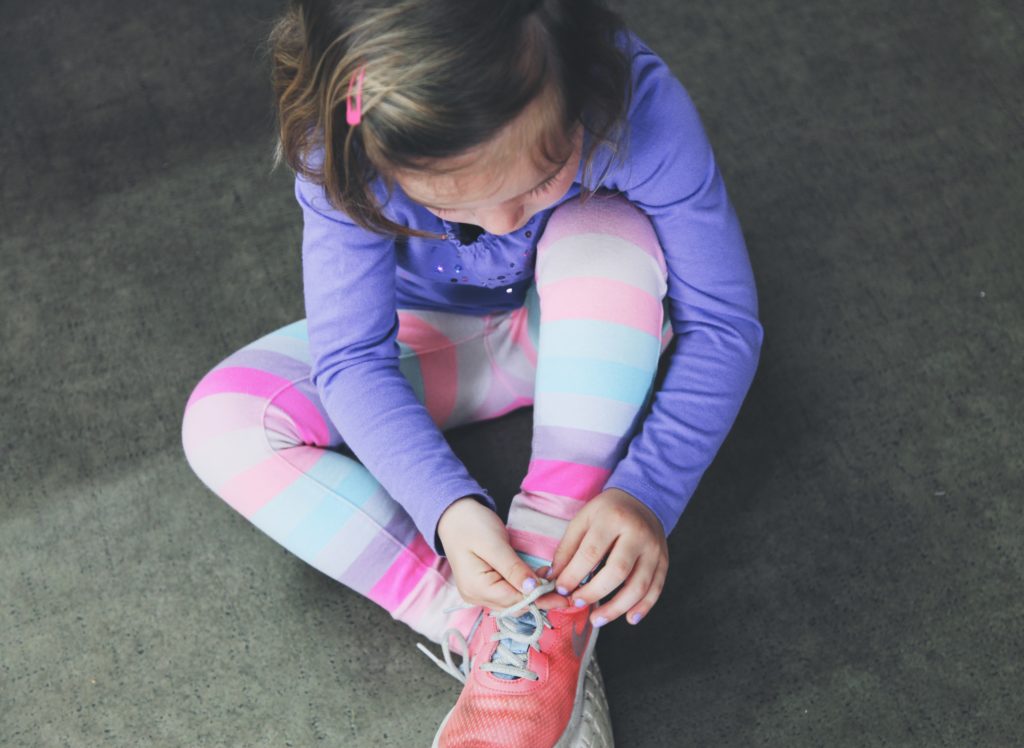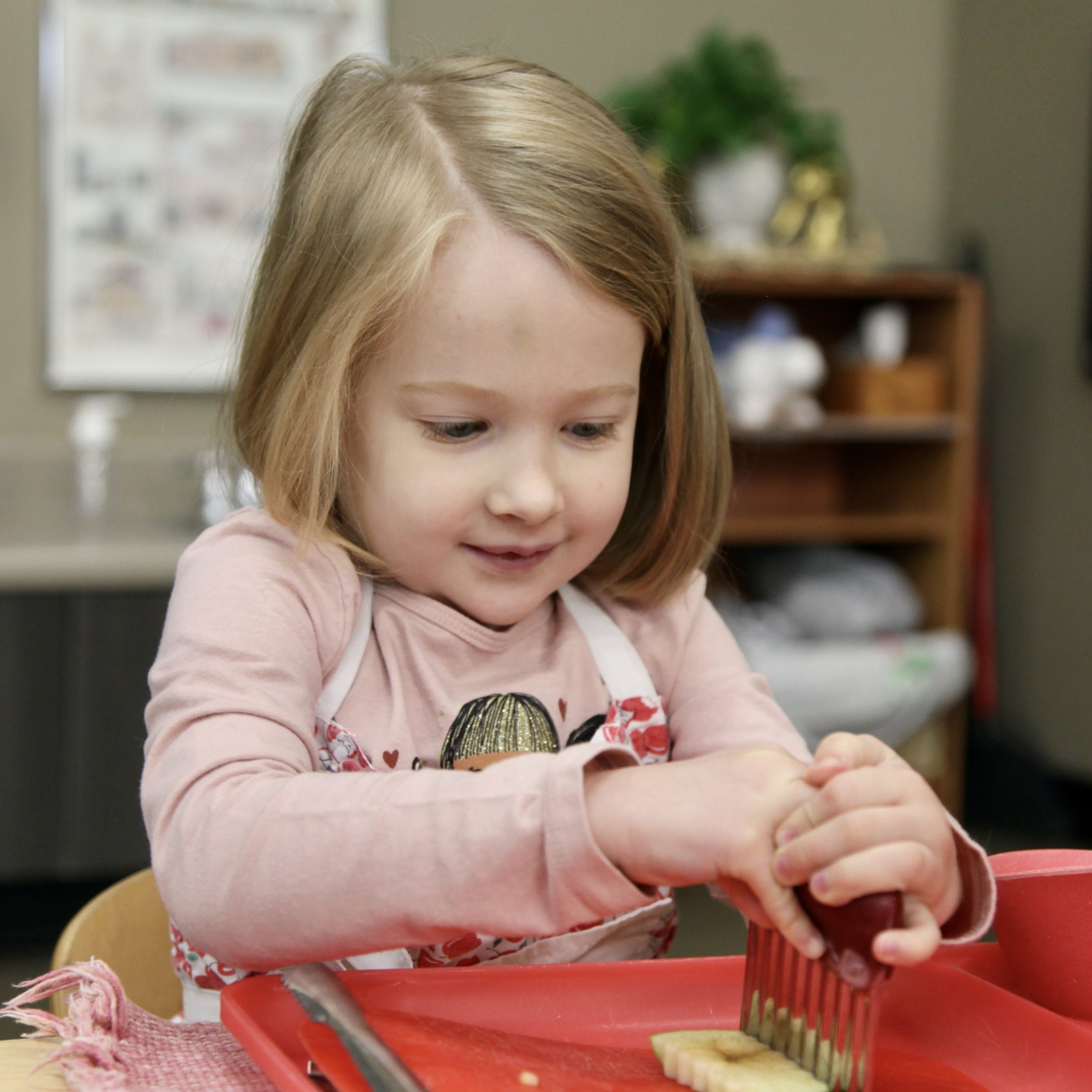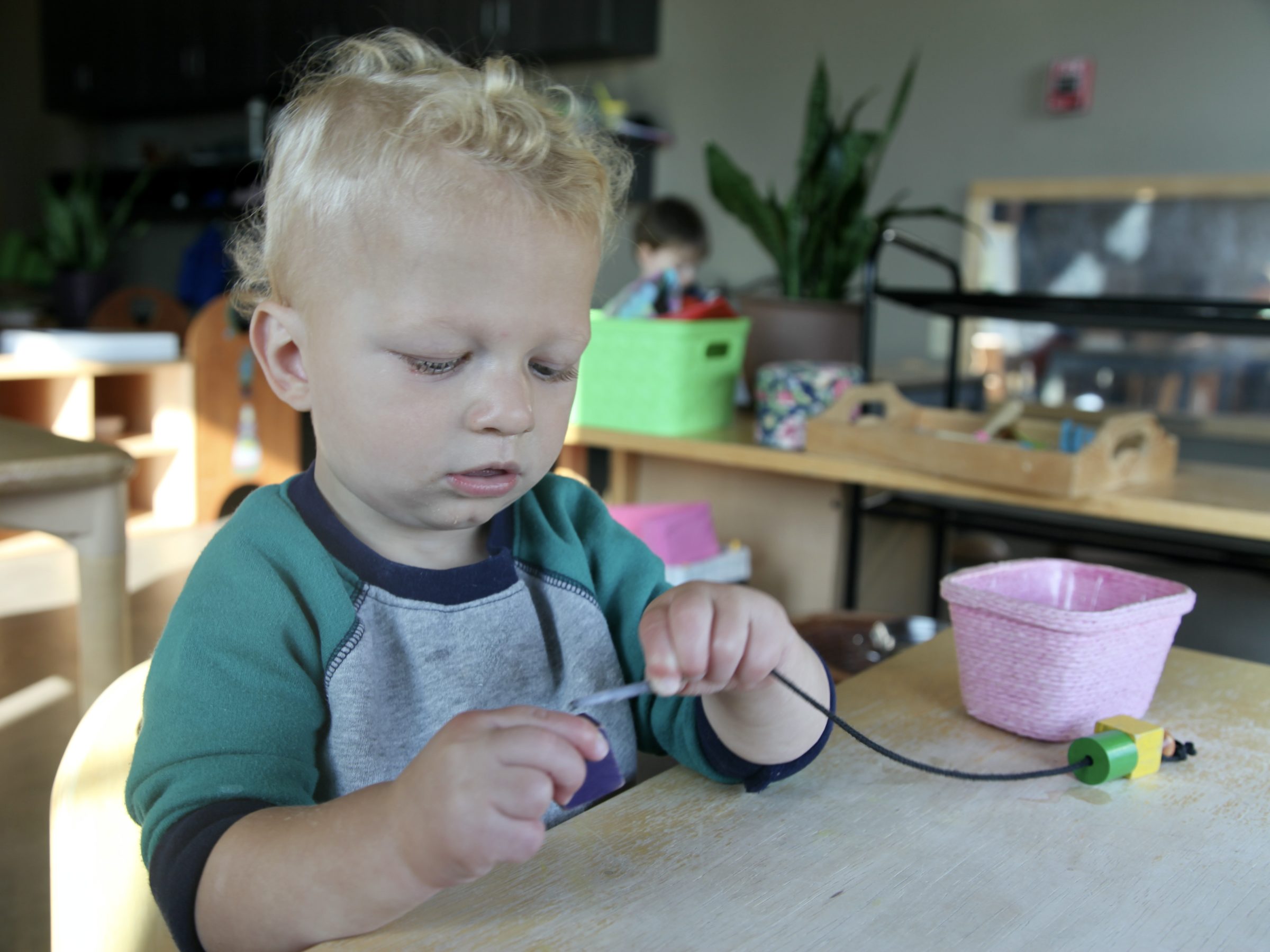Consistency
Thoughts & Reflections
We’ve written a lot about Discipline. Freedom and Discipline, Self-Discipline, it’s a concept we sometimes struggle with, until we see the many ways children live into it, and the ways it benefits them, and actually gives MORE options, rather than fewer.
The Discipline we help children grow into in a Montessori classroom is self-discipline. The way we do this, requires the highest level of self-discipline we can muster. It requires patience and consistency and self-reflection. We fall short, we succeed, we learn, all day, every day. As always, we’re learning as much from the children as they are from us.
In order for children to be successful, they need a model (that’s us), they need access to that model (classroom materials, activities at home, a stick in the dirt), and opportunity to practice. To try, to fail, to hone, to fall, to succeed, to thrive, to repeat.
Anything we want children to learn, needs to be present in the environment. There is a phrase, we are what we repeatedly do. In this sense, children are what they repeatedly see and practice. If a child never heard Russian, she wouldn’t learn Russian. If a child never saw someone walk, why would she walk? A child who only saw chopsticks wouldn’t know what to do with a spoon. There is this drive to be like the people around us, and from the earliest days children mimic actions, movements, behaviors, gestures, and we call that language, culture, life.
“Anything we want children to learn, needs to be present in the environment.”
Just like we talk to children because we hope someday soon they’ll tell us their needs and share big stories and engage us in conversation, we must model, and reinforce, behaviors and skills we hope to turn into habits. We must be consistent.
If we want children to say “thank you,” we model saying “thank you.” Every time. Overtly, even casually. A stranger holds the door. Your partner passes the salt. Your child gives you a toy. This is what we do. Someone gives you something — a compliment, an object, a favor — you say thank you. This is the model.
That desire to be like My People, whether it be family or classroom or community, is strong within children; it is a drive.
In the classroom, we use something called a Grace and Courtesy Lesson to overtly practice these behaviors. How to offer a tissue. How to say excuse me. How to apologize when you’ve hurt a friend. This whole little scenario is acted out (modeled, seen, practiced) for any behavior we’d like to see lived into in the classroom.
We practice together. No matter how tedious, we say thank you every single time the baby hands us the toy. Every single time. Because, if we don’t we are an inconsistent model. And because this child is still learning, she cannot tell the rules. So, sometimes we say thank you, and sometimes we don’t? The nuance is lost. If I want a child to do something Every Single Time, I must do it Every Single Time.
Let’s look at another example. Let’s say, I’d like a child to clean up a spill she’s made. Remember, she needs, a model, access to that model, and the opportunity to practice. And, she needs my Consistency.
She needs to see me cleaning up. Sometimes we make this overt. “Oh! I seem to have spilled some rice! I’m going to need to clean that up.” I get the broom and clean it just the way I want a child to.
She needs a small broom and dustpan she can use. She needs to be able to use them whenever she has a spill, not have them tucked away out of reach.
“The Discipline we help children grow into in a Montessori classroom is self-discipline.”
In the beginning, cleaning up her own spill might mean two grains of rice end up in the trash and that’s all she’s capable of. It might mean she needs a bit of a cue. “I noticed some rice on the floor. Do you remember where the broom is?” “This spill will need to be cleaned up before we can read a book together.”
It might not be perfect right away. This is the practice. We might clean up together, and she feels so confident and like she cleaned that whole lake of water that cascaded out of the tub when she was pretending to be a whale, when in reality, it was all of a thimble full. But if we want her to be able to do it herself some day, she needs that practice, affirmation, trying and trying and trying.
And then the consistency.
It might happen, that she spills a bit, and peers over, wondering if you noticed. She knows what to do, she has the skill to do it, but, do I clean up after myself EVERY time? If I pretend it’s not there, what are you going to do? It’s absolutely natural to wonder, do you mean it? We say thank you, we clean up after ourselves, we treat one another with respect and care EVERY time?
And in these moments, it is the most important to make eye contact, to smile and nod, to remind her, do you remember where the broom is? To ask, did you notice you had a spill? Yes, we tidy up every time. This time included.
Only after a million times of being consistent, of modeling and encouraging and practicing, do we see all these wonderful qualities become habits — spontaneously saying “thank you,” a child jumping up, and before we can even wonder where she went, she returns with a broom to clean a spill we hadn’t even noticed, a genuine apology for an unintended wrong. The children can only be consistent if we are.
Written by:
Charlotte Snyder
